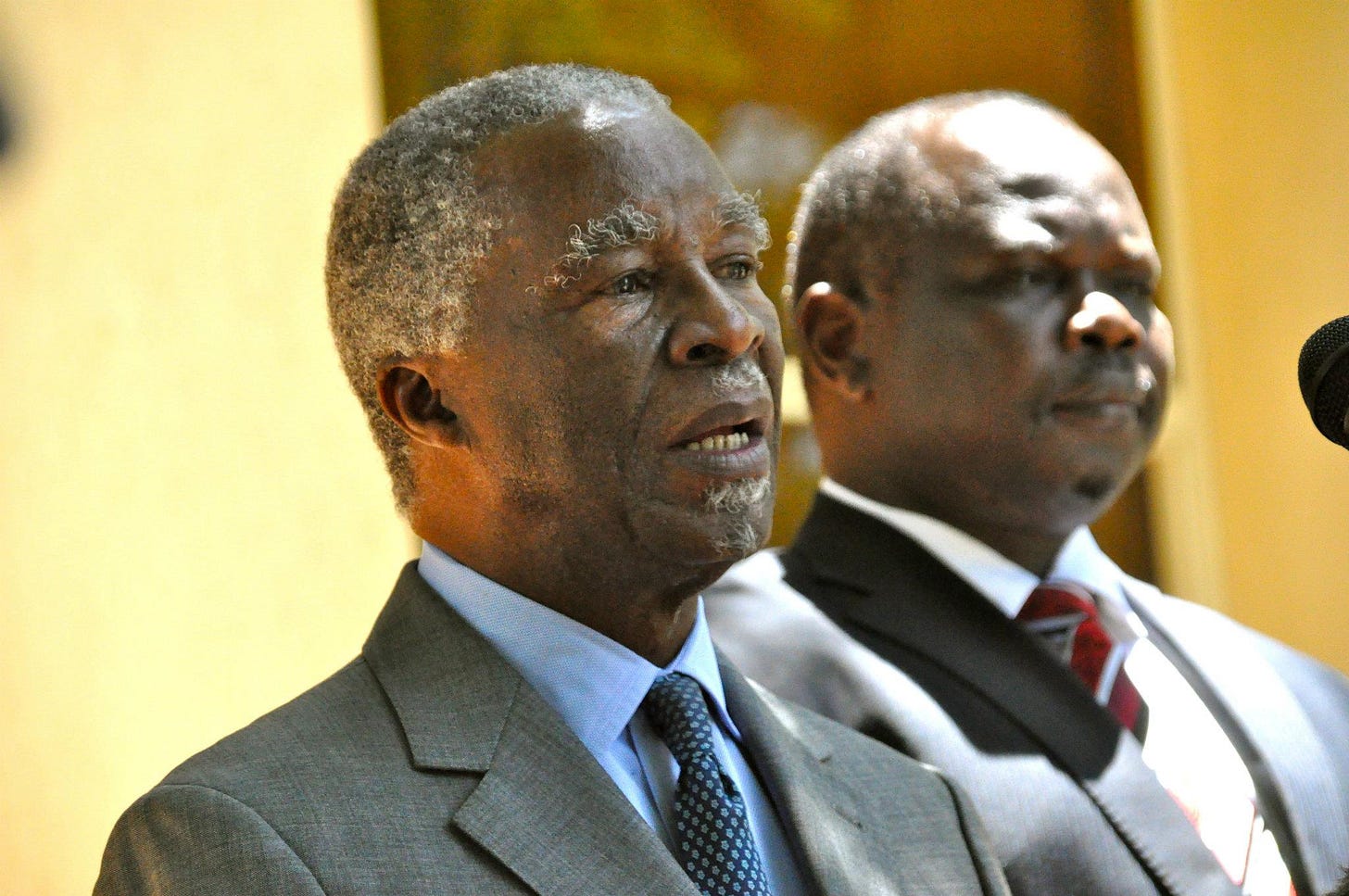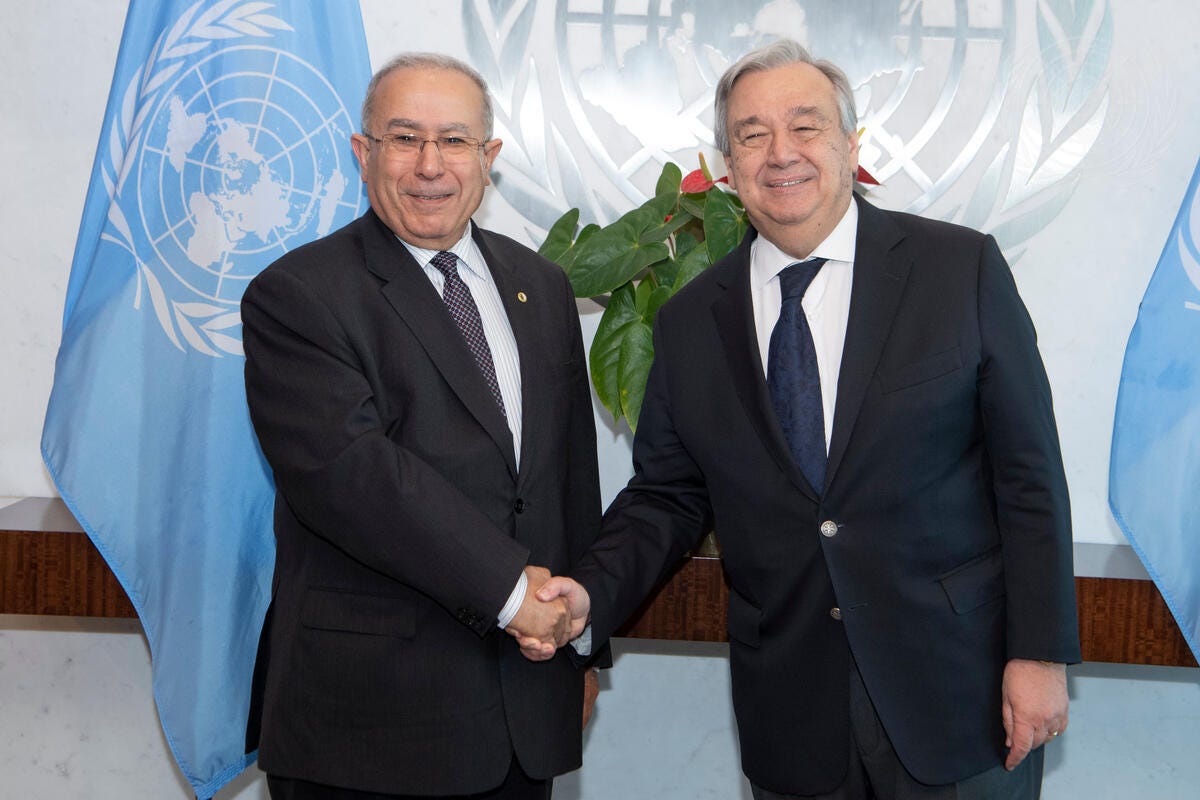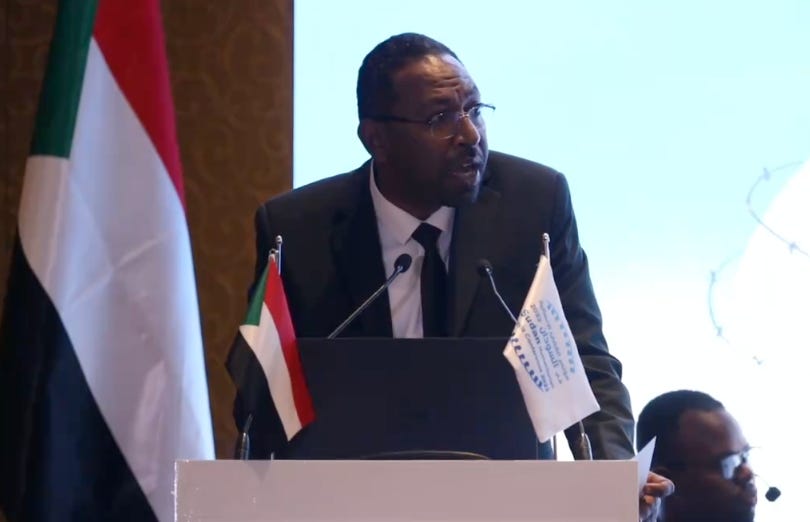Mbeki: ‘African and international response to Sudan disaster woefully inadequate’
Former chief mediator calls for deeper African engagement
Thabo Mbeki, the former president of South Africa, has called for a more robust humanitarian and political response to Sudan’s crisis.
Mbeki is the former chief mediator of the African Union for Sudan. From 2009-2020, he played a significant role mediating between Sudan’s government and Darfur rebel groups. He also played a role in negotiations between Sudan and South Sudan after latter’s transition to independence in 2011. His intervention helped resolve the brief Heglig war between the two countries in 2012.
In a video address to a humanitarian conference in Cairo, Mbeki said,
“Sudan is no stranger to humanitarian crisis. Indeed, its recent history has been punctuated by episodes of drought, famine, and war-induced starvation. But never before have we witnessed a crisis at this scale. The African and international response to this disaster has been woefully, woefully inadequate.”
Mbeki went on to recall the role of the United Nations in Operation Lifeline Sudan, launched in 1989 to address a famine in South Sudan, as well as the response of the African Union to the crisis that started in Darfur about 20 years ago.
Mbeki noted that over the course of 17 years in Darfur, thousands of African peacekeepers served with the African Union Mission in Sudan (AMIS) and its successor, the hybrid United Nations-African Union Mission in Sudan (UNAMID).
He paid tribute to the 270 peacekeepers who lost their lives in Sudan. “We owe it to those men and women to seek peace and the protection of civilians in Darfur today. Let me express my particular sorrow for the victims of the recent massacre in Ardamata in West Darfur State, as well as others before, especially the Masalit.”
The UNAMID peacekeeping mission withdrew from Sudan in June 2021, two years before the outbreak of the current war.
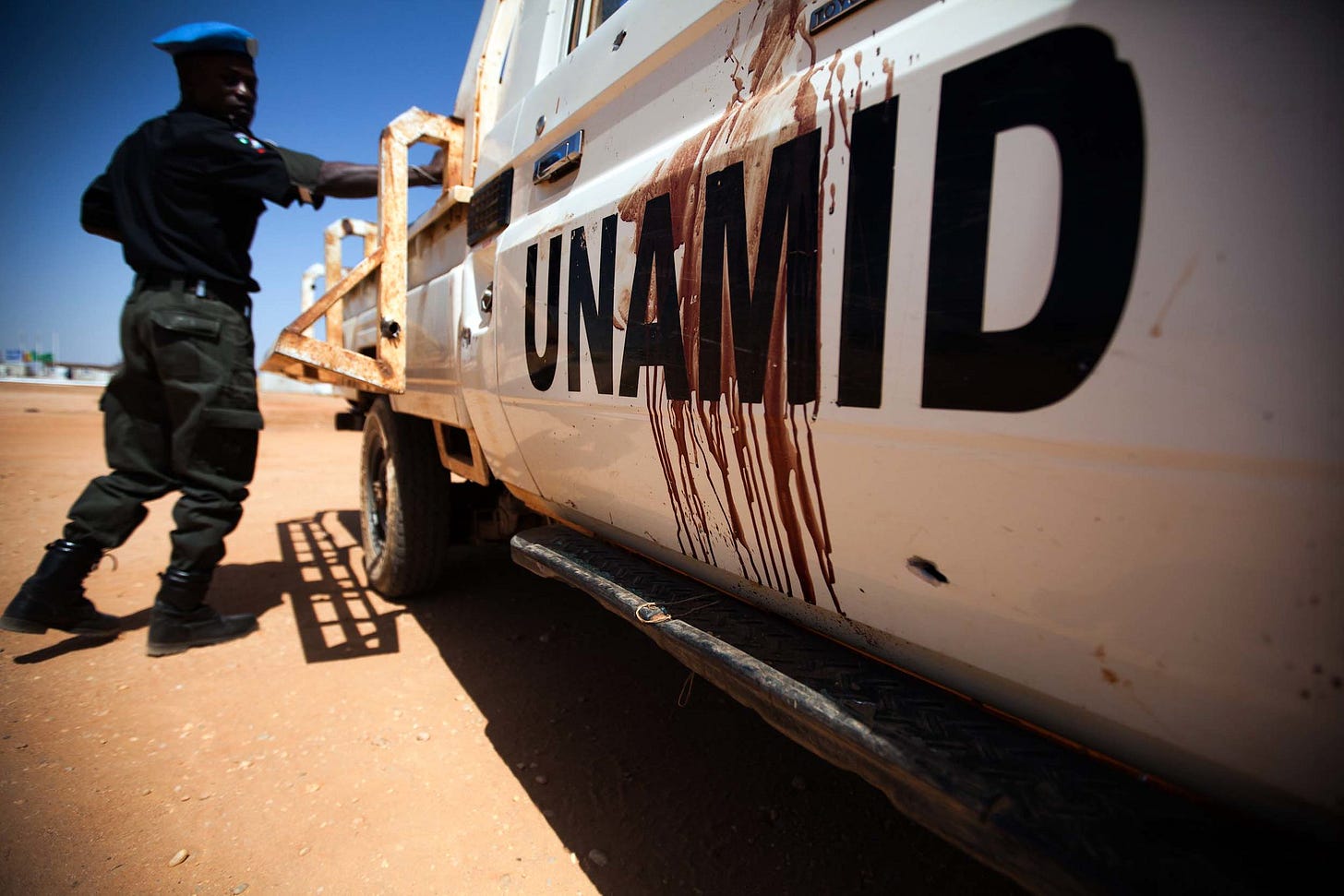
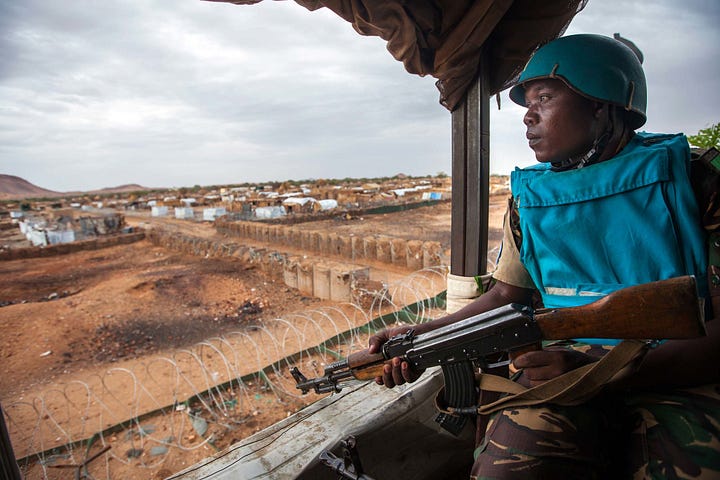
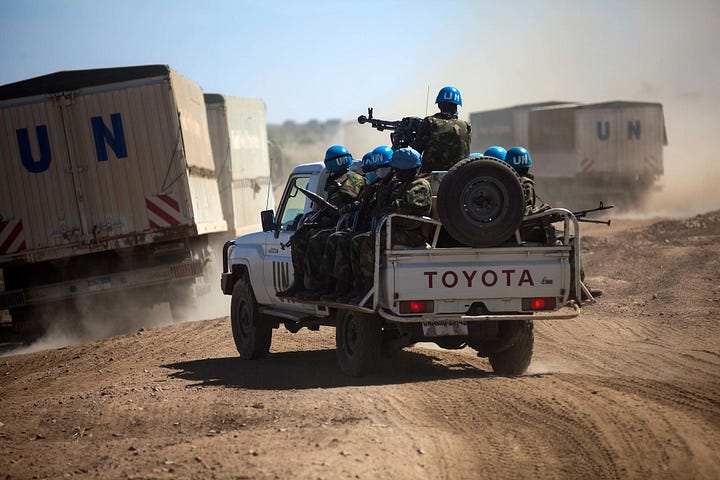
Mbeki added, “The escalating violence against civilians in Darfur is appalling, and I appeal to those responsible, especially the commanders of the Rapid Support Forces, and the associated militia, to halt this criminal behavior at once.”
“In Darfur, large numbers of people are seeking safety in the city of El Fasher, which is the sole remaining large city not controlled by the Rapid Support Forces. When the RSF took over the cities of al-Jeneina, Zalingei, and Nyala, on each occasion the residents were subjected to massacres, to pillage and to rape. We cannot allow this to happen to El Fasher. We should consider every possible measure to ensure the protection of civilians.”
As to what should be done, Mbeki urged more funding for the humanitarian response in Sudan and a more direct role for the East African bloc IGAD in peace talks. He urged an immediate ceasefire and a negotiated end to the war: “I would suggest… that while attending to the matter of humanitarian access, IGAD should also take up with SAF and the RSF and the civilian formations the challenge to put the Sudanese people first and seek a negotiated end to what is a needless war. As it engages those role players, IGAD would maintain regular contact with its Jeddah process co-facilitators, as well as with Egypt and the collective of Sudan’s neighboring states.”
Although Mbeki did not attend the Cairo conference, he made remarks via a recorded video and written statement. Mbeki thanked the conference organizers and paid tribute to the humanitarians serving Sudan, including those who gave their lives. “Thank you for the important work that you have done,” he said.
Sudan’s civil war, which began in April 2023, involves two factions of the military regime that took power in a coup in 2021, toppling a civilian government that took over from the long-time dictator Omar al-Bashir in 2019. Mohamed Hamdan Dagalo, one of the coup leaders, heads the paramilitary RSF. Abdelfattah al-Burhan, another coup leader, is commander-in-chief of the Sudan Armed Forces (SAF). Together, they ruled as chairman and deputy chairman of a military council. However, a rift grew between them, culminating in the eruption of fighting.
Mediation efforts led by the United States and Saudi Arabia have so far failed to stem the violence. The latest round of talks, held in Jeddah, resulted in humanitarian commitments by the two sides, but no political agreement or ceasefire. The East African bloc IGAD, led by Kenya, joined the Jeddah talks recently as co-facilitator.
New envoy as SAF seeks termination of UN mission
Mbeki’s former colleague on the AU High-Level Implementation Panel for Sudan, Algerian diplomat Ramtane Lamamra, will serve as the new top UN envoy in Sudan.
He was appointed Tuesday by UN Secretary-General António Guterres, just days after Sudan sent a letter to the United Nations requesting the “immediate termination” of the UN political mission in the country, UNITAMS.
Unlike the former peacekeeping mission, UNITAMS was a political mission only, without a civilian protection mandate. The former head of the mission, Volker Perthes, was declared persona non grata in June.
In a letter to Guterres, which was also circulated to the UN Security Council, Sudan's acting Foreign Minister Ali Sadiq wrote, "The government of Sudan requested that the United Nations immediately terminate the UNITAMS mission. At the same time, we would like to assure you that the Government of Sudan is committed to engaging constructively with the Security Council and the Secretariat."
As “personal envoy” of the UN Secretary-General, Lamamra ‘s role will not be dependent on the fate of UNITAMS. Lamamra formerly held several high-level governmental positions in Algeria, including serving as deputy prime minister, foreign minister, and presidential advisor.
Between 2008 and 2013, he served as the African Union Commissioner for Peace and Security. Since 2017, he has been a member of a UN high-level advisory board on mediation. Between 2018 and 2021, he served as a member of the AU High-Level Implementation Panel for Sudan, South Sudan and the Horn of Africa.
He is fluent in Arabic, French and English.
Cairo humanitarian conference
The three-day Sudan Humanitarian Crisis Conference in Cairo concluded November 20, after reaching consensus on a number of recommendations. A committee will prepare these recommendations into a report. The conference emphasized the principles of solidarity, decentralization, and reliance on grassroots initiatives, in contrast to past UN-led humanitarian responses.
“The conference is not an event that comes to an end today, however, it is a first step in a process that we hope will be integrated with all other processes to revitalize the response to the humanitarian crisis in Sudan,” organizers said in a closing statement. “The role played by the grassroots initiatives in the humanitarian crisis, which is inspired by the Sudanese heritage of solidarity and courage, represents a pivotal role in combating the suffering caused by war. This significant role should always be considered in the planning of any initiatives or activities to address the crisis in Sudan.”
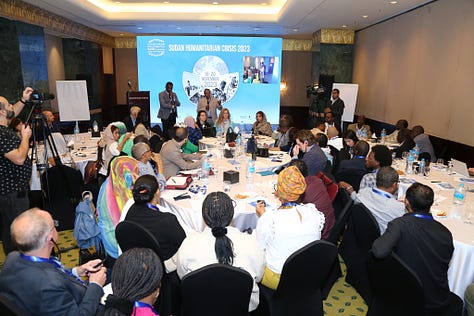

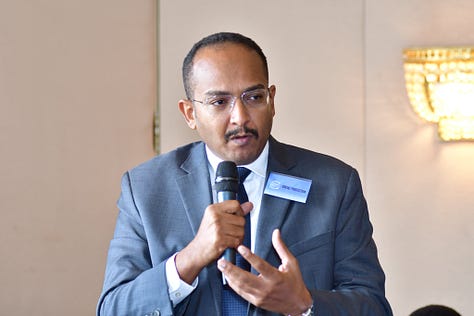
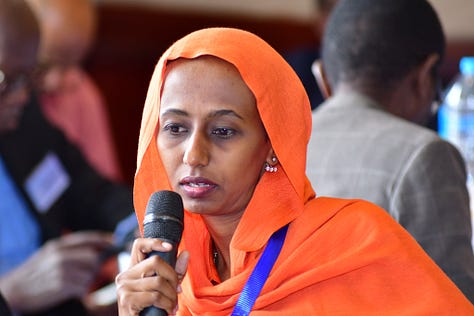
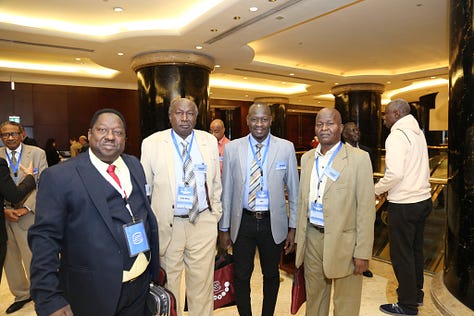
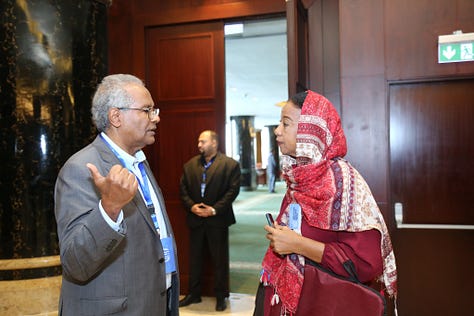
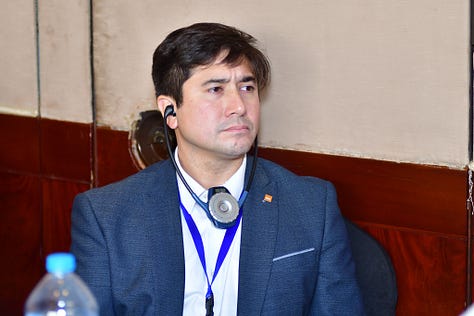
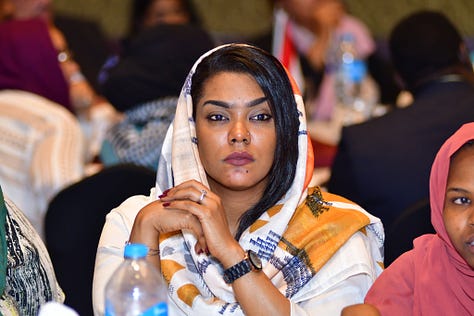
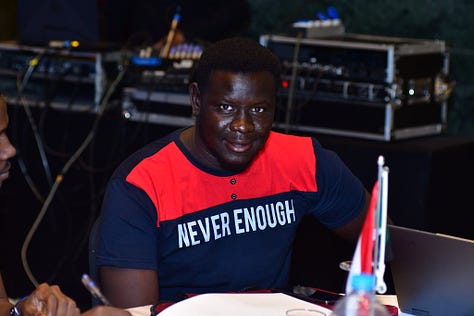
The conference was organized by Fikra for Studies and Development, the Obstetrical and Gynaecological Society of the Sudan (OGSS), the Strategic Initiative for Women in the Horn of Africa (SIHA), the Sudanese Journalists Association (SJA), Darfur Bar Association (DBA), the Sudanese Development Call Organisation (Nidaa), and the Norwegian Refugees Council (NRC), and Emergency Lawyers, with funding from Norway and the United Kingdom.
According to organizers, 100 participants traveled to Cairo from inside Sudan, representing various grassroots humanitarian initiatives, and 102 participants represented international aid groups and UN agencies. There were also dozens of Sudanese refugee representatives who traveled from countries neighboring Sudan, as well as representatives of donor nations. In total, 420 people participated.
“The homeland belongs to us, with all its wars and famine and pandemics—it belongs to us.”
- Closing statement of the Cairo Humanitarian Conference
The conference “exceeded expectations,” said Norway’s Ambassador Endre Stiansen. He pledged that his country will continue to support Sudanese civil society. “The main takeaway is that it’s possible to make a difference,” he tweeted.
Jan Egeland, secretary-general of the Norwegian Refugee Council, said in a speech, “I have been a humanitarian worker for many, many years. I have hardly seen such a mega-catastrophe. It’s not just a crisis, it’s just a catastrophe, engulfing tens of millions of people. And there is too little resources. So we need much more funding for all of the organizations involved in the humanitarian and other efforts. We need to place the Sudanese civil society organizations, the community organizations, the Sudanese nongovernmental organizations at the heart of our response.”
Similarly, the Executive Director of Fikra for Studies and Development, Dr. Amgad Fareid, praised the role of grassroots aid groups, including the so-called Emergency Response Rooms, while calling for donors to remove red tape:
“They evacuated people trapped in the fighting areas, they opened passages for delivery of aid, they helped in reopening and reestablishing health centers, delivering food, water, basic needs. What they did was an amazing job. They need to be supported, and they need to be supported on their terms—not on the donor community terms. You cannot force them, while they are the only effective method of delivering aid right now, you cannot force them to change their tactics that work.”
Despite their significant role in the humanitarian response, the Emergency Response Rooms have not received much international funding. Much of their funding has come from the diaspora, or from community donations, and they are largely volunteer-run.
In general, the emergency response rooms are organized as collectives without hierarchical leadership structures, similar to the resistance committees that led the protest movement that toppled the former dictatorship. This type of decentralization helped the protest movement survive attempts by the former regime to crush it, while internal democratic practices generated credibility amongst a population yearning for democracy after decades of repression. These same practices, however, have complicated international donor engagement with the grassroots stakeholders. Most humanitarian donors are accustomed to top-down rather than bottom-up accountability structures.
“Any attempt to centralize the emergency rooms and the local grassroots initiatives will just decrease their effectiveness.”
Farid, who formerly worked as assistant chief-of-staff to Prime Minister Abdalla Hamdok, also emphasized the need for a decentralized humanitarian response: “Sudan is very big, and the area of conflict is vast, and there are different responses in different areas. Depending on the local setting these first responders all found the best tactics and ways to respond to the crisis and mitigate it. And there is no practical way to centralize this right now. There is no practical way—especially with the absence of the big organizations—there is no way to centralize the response.”
“Any attempt to centralize the emergency rooms and the local grassroots initiatives will just decease their effectiveness. They utilize creativity—we need to utilize the creativity of the local respondents in addressing the crisis in their respective situations and as per their terms.”
While conveying the seriousness of the crisis, Egeland also stressed that it is not hopeless: “We have to project to the world that it’s not hopeless. We can turn it around in Sudan. We need Sudan to be peaceful, we need the Sudanese youth and children to have hope for the future, and we can do that if we work together, under the leadership of the Sudanese peace and humanitarian and human rights forces themselves. We can help you succeed, we will succeed, there will be better days for Sudan, and we’re here to help you in that.”
Livestreams
Organizers made available several videos from the conference, including videos of breakout sessions on various topics including the health sector response, gender-based violence, food security, social protection, and coordination and logistics.


